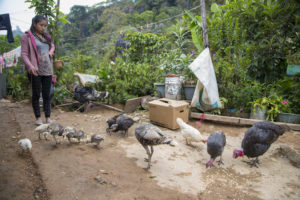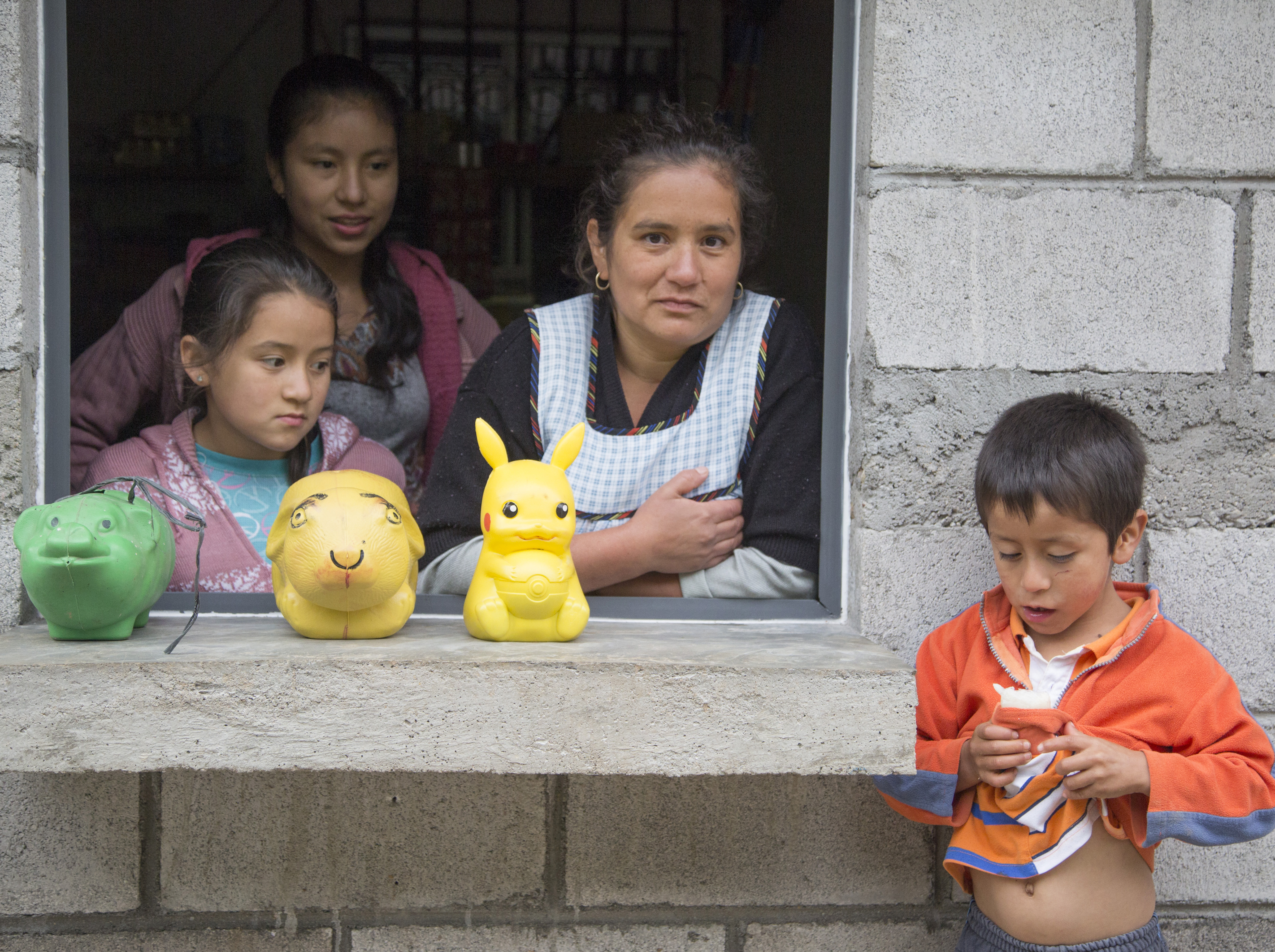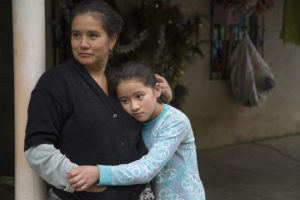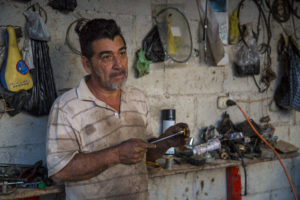In an isolated mountain village in Guatemala, a small world is getting bigger.
In 2012 NRECA International and Indiana electric cooperatives brought electricity to three isolated mountain villages in western Guatemala. Volunteer linemen built new distribution lines and connected electricity to more than 175 households and businesses for the very first time. This area is known for its coffee farms, its beauty and very rugged terrain. Without help from NRECA International and America’s electric co-ops, these villages and others like it could be decades away from receiving electricity. Today residents of one of these villages—Las Cuevas, have felt the positive impact of affordable and reliable electricity.
Five Years of Power: Las Cuevas, Guatemala
For the Villatoro family, daily chores done by hand are a thing of the past. Deafening sounds of an electric mill grinding corn for the day’s meals is the norm, as is the churning of clothes in a washing machine. A family-owned store now sells frozen meat, and ice cream is popular in the summer time. The family spends half of the previous $28 price tag for candles on its monthly electricity bill, and the children can use electric lights and a computer to study and do homework.
And for Romeo Perez, a coffee grower in a neighboring village, his dream to focus his life’s work on just coffee may be within reach.
Here are their stories.
|
|
Sulmy Noemi Castillo Martinez, 16, stands outside her home in the isolated mountain village of Las Cuevas.
She is a typical teenager, always with her cell phone. Plus her chickens and turkeys.
Sulmy attended school in Hoja Blanca, a neighboring village about 30 walking minutes away. Together with many other children, she graduated from this school a few years ago, with no other easy option for continuing her education at the secondary level. Electricity opened up the world for Sulmy.
“We couldn’t get much done without electricity,” she told us through a translator. “It makes me happy now that we have electricity.”

Today, thanks to available electricity, coupled with her desire to be a nurse when she grows up, she relies on the Internet and emails from her teacher to get her schoolwork done. Her teacher visits her every two weeks for her lessons, and she is on track to get a high school diploma.
“When she can’t come she will call me to tell me what my homework is,” Sulmy explained. “I mainly work from books but if the homework is not in the books, she will email me the work.”
Sulmy also has a poultry business. Each day she follows her chickens and turkeys, feeding them and taking inventory. Money from this is helping her pay for her teacher. Her world is growing every day.
In her own words.
|
|
Merly Nuemi Martinez Villatoro, mother of three and shopkeeper.
Electric corn mills, kitchen appliances, and ice cream in the summer. It’s the simple things that count.
On the window sill of her family store where she greets customers, Merly Villatoro talks about her shop, what she sells, and what is popular. Business is good. In addition to basic sundries, Merly now sells other popular items that were not possible before electricity–thanks to the refrigerator she bought when power lines were connected to her house.

“I sell ice cream, frozen chocolate covered fruit, soda, cheese and frozen meat,” Merly said. “I make all kinds of ice cream, and we will save the money for Bibiana’s school supplies. She knows that’s what the money is for.”
As she talked, she pulled out three money banks one by one, and her children gathered around her. Daniel (6), Bibiana (10) and Sulmy (16). The middle money bank is heavy with Sulmy’s coins from selling chickens and turkeys. The coins in the green money bank is from the ice cream sales–money for Bibiana’s school supplies. And when she helps her sister Sulmy with her poultry business, Bibiana deposits her compensation in the third money bank.
“When it is really hot in the summer, I sell more frozen food, and I sell a lot of ice cream.” she declared.
 Electricity also allows her to put a wider variety of food on the dinner table. It used to take hours to manually grind corn for tortillas, something she would avoid when it was just too hard, or when she didn’t have time. Now Merly can make quick meals in the morning for her children before school, and the mere 15 minutes to grind corn leaves her more time to do other things.
Electricity also allows her to put a wider variety of food on the dinner table. It used to take hours to manually grind corn for tortillas, something she would avoid when it was just too hard, or when she didn’t have time. Now Merly can make quick meals in the morning for her children before school, and the mere 15 minutes to grind corn leaves her more time to do other things.
Merly's store.
|
|
Romeo Perez, coffee grower and car mechanic.
His mechanic days are numbered. And that’s just the way he likes it.
Romeo Perez talked while standing in the doorway to his small coffee warehouse. He sells a ton of coffee beans each year, keeping 500 pounds for personal use and small sales. Coffee farming has been in his family for generations, and brings income for most of the people living in this region. In this highest non-volcanic mountain range in Central America, currents of hot air sweep up from Mexico, protecting it from frost and making it a perfect growing environment for cultivating coffee.
Romeo doesn’t have to pay someone to manually roast his coffee beans over a fire anymore. Now electricity powers his roaster that he can use day or night.

To supplement his income, Romeo operates a car repair shop. His compound is littered with car parts, almost hiding his electric-powered coffee roaster. He wants to export his coffee to other countries. But mostly, he wants to stop repairing cars so he won’t get greasy and dirty every day.
“I am not a mechanic, but I learned. I feel uncomfortable because I’m dirty all the time. Before I can work with coffee I have to go wash up and bathe. I would like to remove all this, dedicate myself only to coffee.”